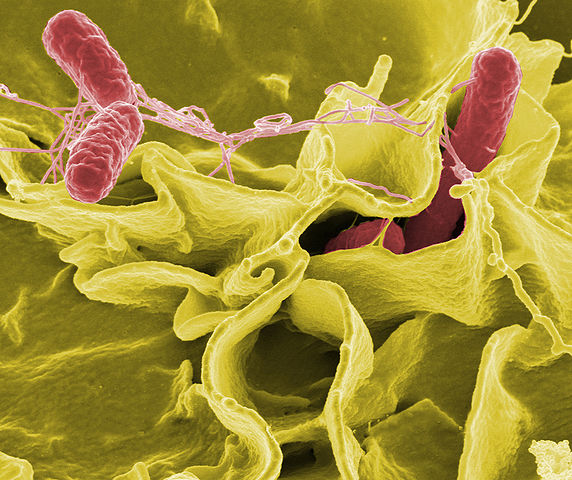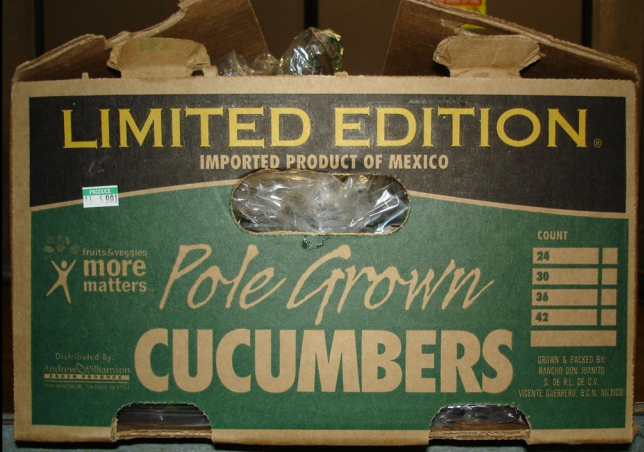
Salmonella found in rocket, radish sprouts, paan leaves
Two reports of the presence of salmonella in rucola (rocket) from Italy are among 60 fruit and vegetable notifications posted on the RASFF – Rapid Alert System for Food and Feed – in the month to December 23.
According to the site, Norway was the source of information that a sample of Italian rucola taken on on December 8 tested positive for Salmonella Napoli. It said the product was withdrawn from the market.
And Norway reported a sample of Italian rucola taken on December 1 tested positive for Salmonella Kottbus and was returned to the consignor.

Rucola (image by Leo Michels via Wikimedia Commons)
In a case reported by the UK, Salmonella spp. was found in December 1 samples from paan leaves from India and the import rejected at the border.
Another pathogen, bacillus cereus, was detected in radish sprouts from the Netherlands, according to a notification from Germany.
Border rejections
There were 38 reports in the month to date in the RASFF category of ‘border rejection’, with the majority involving dried fruit, mostly dried figs and apricots from Turkey.
Among fresh foods rejected at border were:
-
Strawberries from Egypt, pesticide residue (methomyl 0.18 mg/kg, reported by Italy)
-
Strawberries from Egypt, pesticide residue (thiophanate-methyl 0.54 mg/kg, reported by Italy)
-
Artichokes from Tunisia, pesticide residue (dimethoate 0.79 mg/kg, reported by Italy)
-
Broccoli from China, pesticide residue (carbendazim 2.1 mg/kg and promecarb 48 mg/kg, reported by the Netherlands)
More than a third of notifications due to pesticide residues
Altogether, pesticide residues accounted for 24 of the 60 RASFF notifications, including:
-
Apples from Poland: dimethoate 0.084 mg/kg, information from Poland
-
Grapes from Spain: ethephon 1.4 mg/kg, information from the UK
-
Grapes from Peru: ethephon 2.4 mg/kg, information from the Netherlands
-
Grapes from Brazil: ethephon 0.9 mg/kg, information from the Netherlands
-
Grapes from Greece: captan (6.525 mg/kg, information from Bulgaria
-
Broccoli from Spain: fluazifop-P-butyl 0.49 mg/kg, information from the Netherlands
-
Cherry tomatoes from Italy: fenamiphos 0.13 mg/kg, information from Switzerland
-
Tomatoes from Poland; flonicamid 0.73 mg/kg, information from Czech Republic
-
Lemons from Albania: fenitrothion 0.053 mg/kg, information from Bulgaria
-
Lettuce from Poland: iprodione 33.6 mg/kg, information from Czech Republic
-
Dragon fruit from Vietnam: iprodione 0.093 mg/kg, information from Belgium
-
Dragon fruit from Thailand: carbendazim 1.5 mg/kg, information from Italy
Among other notifications was one from Slovakia that spinach from Italy was found to have too high a content of nitrate (4439.2 mg/kg – ppm).
RASFF portal


